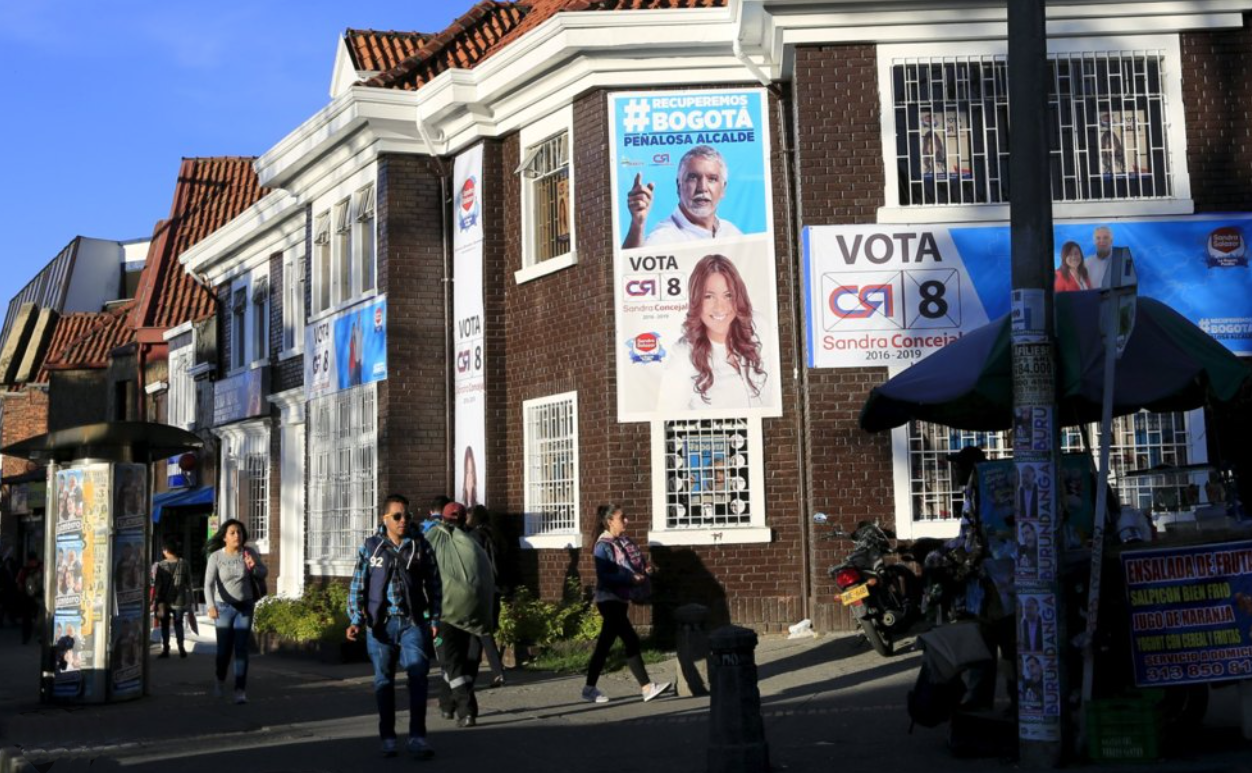October has been a complex month, not only at the international political level but also at the electoral level in the Latin American neighborhood. While national elections enjoy a great deal of media attention, the same is not true for subnational elections. However, we know that local and regional elections have a major impact on the configuration of state interests and policies. In what follows, we briefly highlight the subnational dynamics of two countries that have important differences but present similar points and challenges regarding the political processes ahead.
In Colombia, in the coming days, mayors and municipal councilors of the 1,101 municipalities and governors and deputies of the Departmental Assembly of the 32 departments that administratively divide the coffee-growing country will be elected. Colombia was one of the first countries in Latin America to initiate the process of political decentralization at the end of the 1980s, achieving its consolidation in the 1990s. With more than 30 years of subnational elections, Colombia is a typical case for anyone wishing to analyze political decentralization from a comparative perspective.
In Chile, on October 27, 2024, local authorities in 345 communes and governors and regional councilors (CORE) of the 16 regions that compose the southern country will be elected. Unlike Colombia, where the subnational authorities have been elected since the nineties, in Chile only in 2013 the CORE are democratically elected, while the mayors — later called governors — were appointed by the president in office until 2021. Thus, Chile has recently joined the list of countries that have opted for political decentralization. In this logic, decision-makers have adapted — in good Chilean fashion — many of the experiences of their neighbors to the domestic context.
But the grass is not always greener on the other side of the fence, as the two countries share at least two not minor challenges. First, the high abstention rate in the last subnational elections was mediated by the voluntary vote. For the gubernatorial and departmental assembly elections in Colombia, registered voters abstained by 38.8% and 39.3% respectively. In Chile, the CORE elections reached an abstention rate of 52.8%. The results of the first democratic election of governors seem to follow the same trend. These elections were held in the first and second rounds, with abstention rates of 57.7% and 80.4%, respectively.
A second challenge, although associated with low voter turnout, is the lack of confidence in the performance of institutions by voters. Although we do not yet have instruments to analyze at a comparative level the citizens’ perception of the Governors, Departmental Assembly (Colombia), and CORE (Chile), a proxy could be the question on the performance of municipal institutions.
Performance of Local Institutions in Colombia and Chile, 2020
Based on Latinobarómetro 2020
Taking the “muy problable” (very likely) and “bastente probable” (quite likely) responses in both countries, only 36.8% of Colombians and 32.3% of Chileans believe that local authorities can solve their problems. On the other side, both Colombians and Chileans surveyed perceive a poor performance of subnational institutions in solving their local difficulties.
Although Colombia has a long history of political decentralization compared to Chile, it has not been able to mobilize the majority of its citizens in this type of election. Of course, there are other variables that have influenced subnational dynamics and have negatively impacted the trust and performance of institutions, such as corruption, clientelistic networks, and political violence, to mention a few.
Chile was a latecomer to the decentralization process and, although it added the experience of its neighbors to its process, the country also failed to mobilize its voters in the last subnational elections. However, the abstention scenario could have a minor effect in the following elections, since the enactment this year of Law 21524 reestablishes the obligatory nature of the vote.
In addition, in this southern country, there is a presidential delegate in each region, appointed by the president, who has broad decision-making power. For instance, in budgetary matters of the regions. Consequently, it is a “lame decentralization”, or, as some have also called it, a “tutelary decentralization”.
Future subnational elections are also not free of major uncertainties in both countries. In Colombia, some have mentioned that the configuration of local and regional power has exacerbated the emergence of new parties, to the point that it has led to a fragmentation of the party system. In Chile, some warn that, for the next elections, there will be a potential contingent of voters who distrust the state and politics to solve their problems. And, at the same time, do not subscribe to a particular ideological or political frame of reference.
It is worth remembering that electoral participation is an essential condition of democracies. In the same vein, citizen support for institutions is important, as it is also an essential characteristic for the good health of modern democratic societies.
Each election is an opportunity to reflect on the country we want. The first step is to turn our gaze to the local and regional, recognizing the transcendence of participating in sub-national elections such as those of October 29 in Colombia and, next year, in Chile. So, with our shared complexities and challenges, it is also time-critical to recognize that our grass can be just as green as the grass on the other side of the fence.
*Translated by Janaína Ruviaro da Silva from the original in Spanish.











